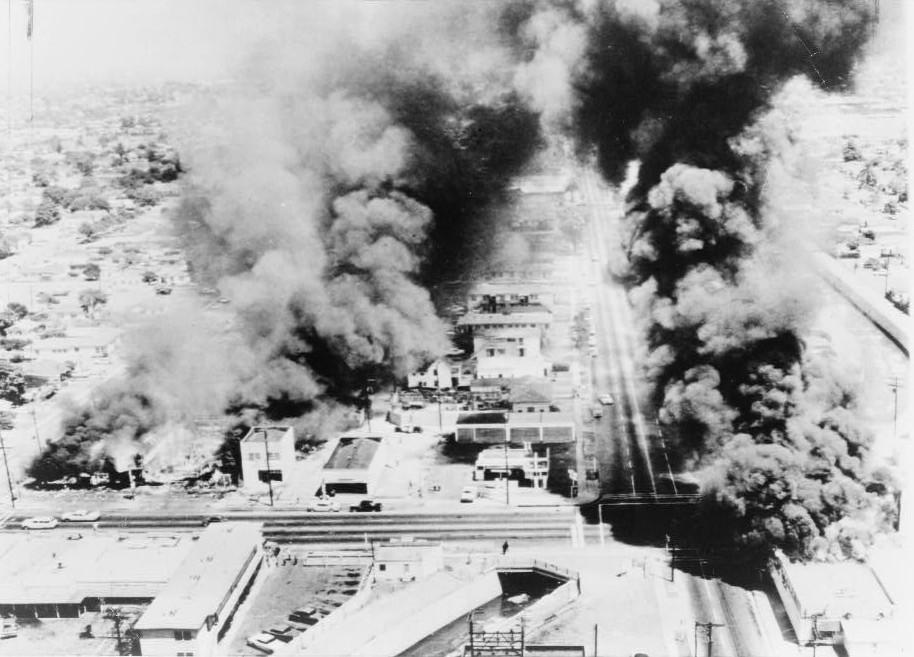The Watts Riots 50 years ago were ‘a rebellion, a protest against the system’
Buildings burn during the Watts Riots in August 1965.
Fifty years ago this week, a highway patrolman clashed with a black motorist suspected of drunk driving on a Watts street corner. The altercation sparked six days of unrest, beginning what came to be known as the Watts Riots or the "rebellion." In the end, 34 people died, thousands were injured and $40 million in property was destroyed.
Writer Erin Aubry Kaplan grew up a few minutes away from Watts in south central Los Angeles. In Los Angeles Magazine, she writes that Watts came to be a symbol of protest and pride.
“Clearly it was a rebellion against the conditions of the time. People tend to forget the fair housing act that was passed in California the year before had been repealed by California voters. There was a lot of anger and frustration and stagnation,” she said. “I really believe that what happened in Watts was a rebellion against all of that. There was looting, there was destruction, but to me that was a subset of the rebellion. It was an expression of anger, but it was rebellion with rioting that happened within that.”
Aubry Kaplan said Watts, the poorest black neighborhood, was two things: the place where nobody wanted to live, and an important symbol of protest, “a reminder that we all needed to be fighting for racial justice.” Later on, anywhere black people lived in LA became associated with Watts, she said. And it became associated with the black power and black pride movement. There was the famous 1972 Wattstax concert and an emerging arts movement.
But things have changed since the 60s, said Aubry Kaplan, just look at the 90s. “I think the moral sense of attaining racial justice has really changed, so Watts lost its cache that way. The whole “black ghetto in crisis” became not a social movement but entertainment and it changed things and changed our political view of Watts and what it meant.”
In the 90s, the image of the black neighborhood was marked by NWA and “Straight Outta Compton” (a movie based on the hip-hop group’s story comes out this weekend). In the beginning this was protest music — a rebellion akin to that of the 60s. But, said Aubry Kaplan, “we didn’t listen to NWA in the same way.” Rather than rebellion, NWA turned the message into big business, becoming a huge cultural phenomenon.
“But we still have the black ghetto in crisis and that I think is one of the paradoxes of Watts,” said Aubry Kaplan. “We keep having these 10-year anniversaries and I wonder, when will we learn the lessons of Watts? Hopefully we won’t be looking at the same paradoxes at 60 years.”
This story first aired as an interview on To the Point with Warren Olney.
Our coverage reaches millions each week, but only a small fraction of listeners contribute to sustain our program. We still need 224 more people to donate $100 or $10/monthly to unlock our $67,000 match. Will you help us get there today?
